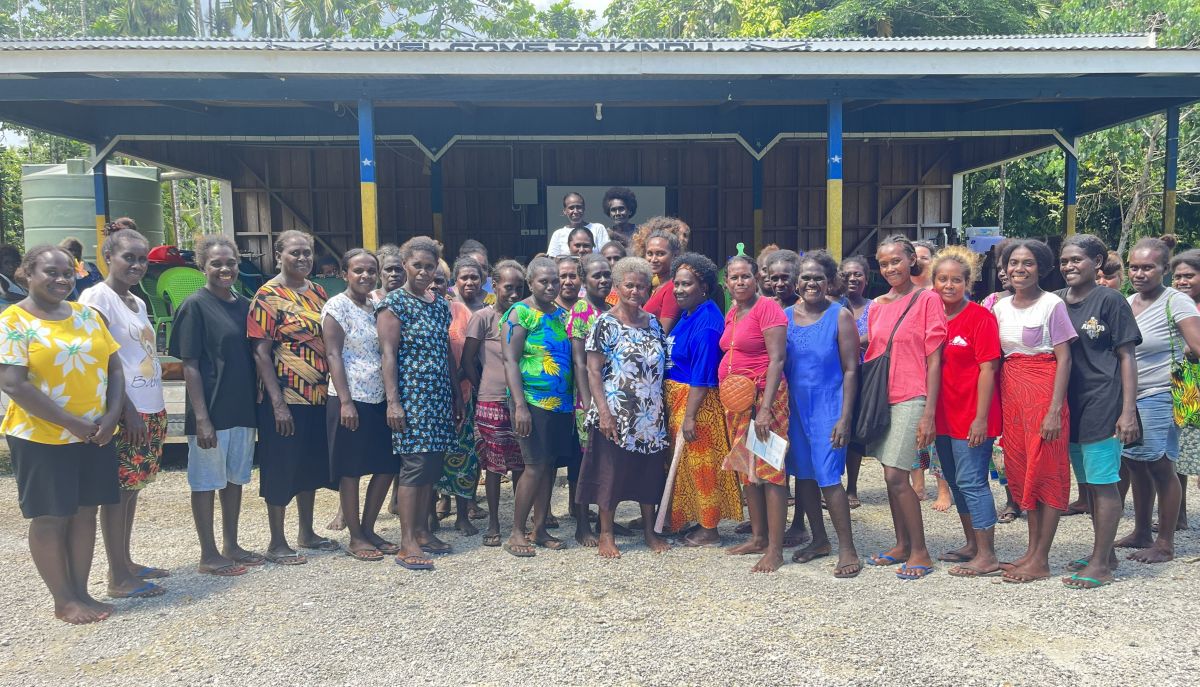
WIF workshop participants from the Munda LMMA.
Wildlife Conservation Society (WCS) recently completed a two-day Women in Fisheries workshop with women from Kindu and Nusa Roviana communities of the Munda Locally Managed Marine Area (LMMA).
The workshop facilitated by WCS Solomon Islands’ Sabrina Pania (Project Coordinator) and Dr Joelle Albert (Marine Technical Advisor), focused on empowering women to better manage the marine resources they harvest.
Dr. Albert confirmed that the women joined the workshop with clear ambitions to deepen their understanding of the biology of key marine species they harvest and depend on for their livelihoods.
“They arrived not as blank slates, but carrying generations of knowledge, local observations, and specific questions shaped by their daily relationship with the sea.”
“When women are empowered to weave together scientific information with their traditional knowledge, they gain the confidence to make informed, culturally grounded decisions - strengthening the stewardship of marine resources today and safeguarding them for generations to come,” said Dr Albert
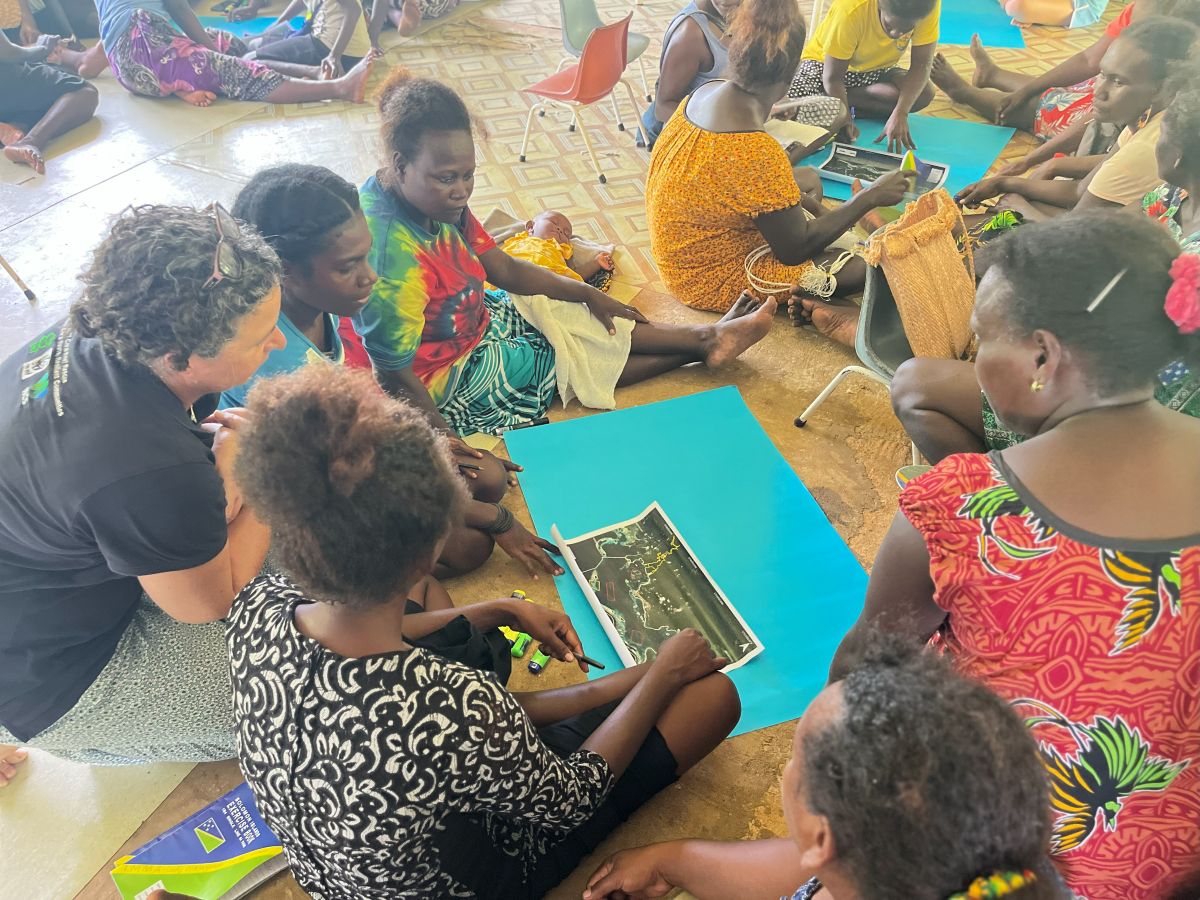
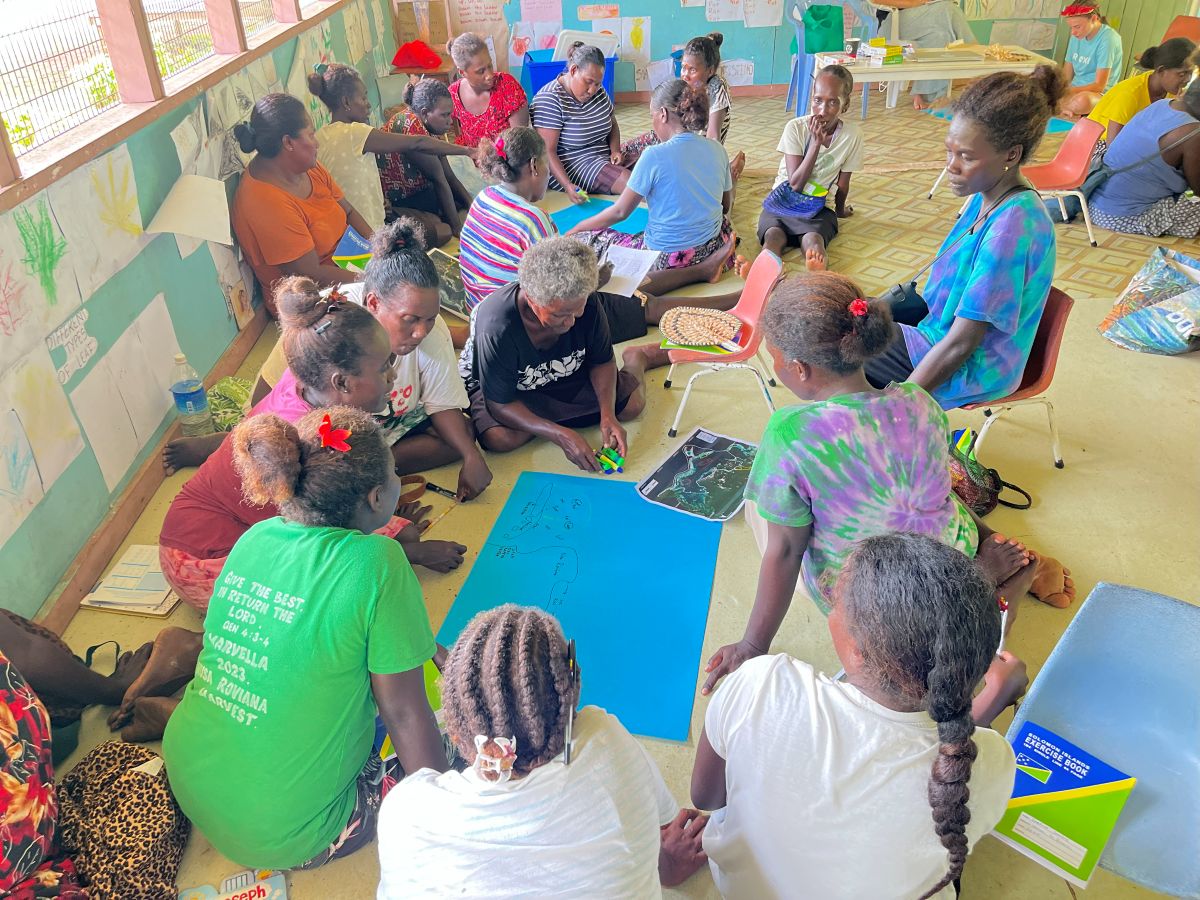
WIF participants actively contribute in the workshop.
30 women of all ages (15 from each community) who joined the workshop were involved in interactive and informative sessions that covered topics including reproductive and life cycles of targeted species’, resource mapping and marine resource sustainable management practices and identifying marketing opportunities.
WCS SI Country Director, Dr. Alec Hughes, provided a brief background and recap of the Munda LMMA for the participants.
“The Munda LMMA represents a collective commitment by our communities to safeguard the marine ecosystems that sustain us, and women are central to making that commitment real,” emphasised Dr Hughes.
“Their daily interaction with the reef, seagrass, mangroves and inshore fisheries gives them a depth of understanding that is essential for shaping practical and culturally grounded management decisions. For the Munda LMMA to succeed, women must not only be recognised for the vital role they already play but also be supported to lead in the co-management and long-term stewardship of our shared resources. This workshop is an important step toward making that a reality.”
Jima Qua a woman participant from Kindu community shared the experience of women in her area as stewards of the shared marine resources.
“We (women of Kindu community) have three seagrapes sites that we practice rotational harvesting on. This allows us to access a good harvest in shallow water twice a week and ensures seagrapes from closed sites grow and recover (seagrapes, Calerpa sp, growth rate is 2cm/day). This harvesting practice, with the knowledge of fisheries resources biology, can help with other marine resources that utilise for food and income,” said Qua.
During the WIF workshop, key activities were identified to help the women protect their marine resources and sustainably manage their fisheries and livelihoods.
• Munda LMMA and its role in sustainably fisheries needs to be further socialized at the community level, so all youth, men and women are aware of the established marine management area.
• Bridging traditional knowledge with an understanding of the biology of targeted marine species can support the design and influence management decisions and harvest practices
• Resource mapping helped the women set realistic management goals that can be achieved, improving their livelihood and protecting marine biodiversity that sustains communities in Munda LMMA.
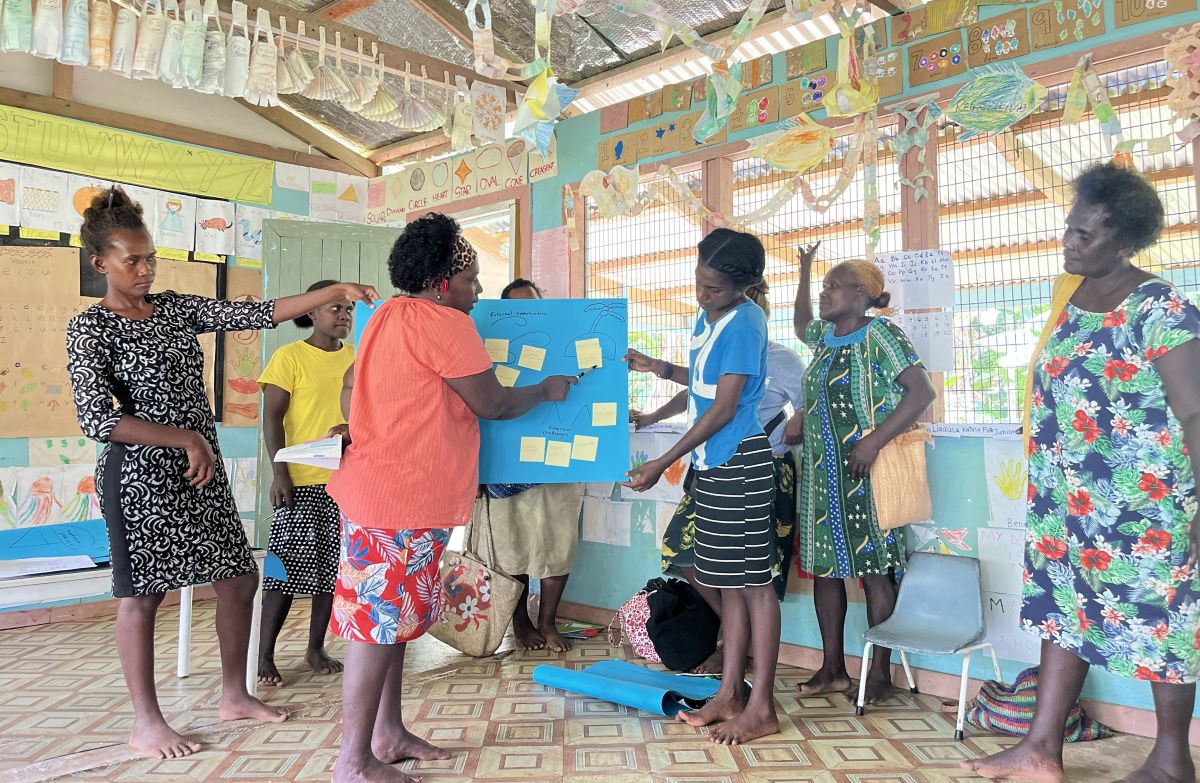
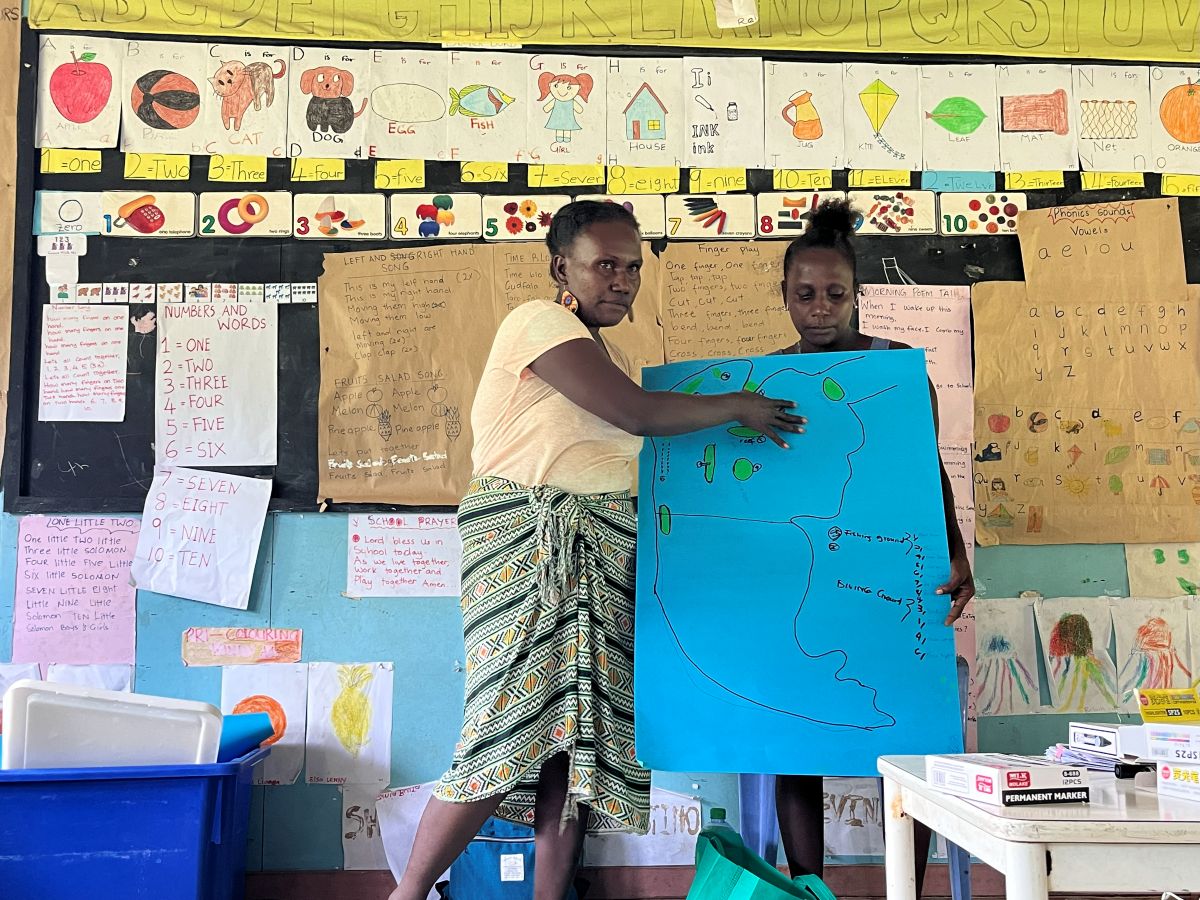
Group presentations were part of the workshop for the Munda LMMA women in fisheries (WIF).
The Munda Environmental Stewardship Association (MESA) chairman, Chief Holmes Matau Saeve and representatives from the Kindu and Nusa Roviana Resource Management Committees (RMC) were also present to officiate the start of the workshop.